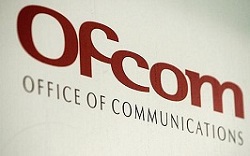Vodafone is the only operator not to live up to its obligation to provide 3G mobile data coverage to 90 percent of the UK, according to Ofcom.
The assessment report, which analysed the coverage of all four UK operators, said that three of the four UK mobile network operators, EE, Three and O2, have successfully met the government-set obligation to provide at least 90 percent of the population with 3G coverage.
The tests come after the watchdog granted 3G mobile spectrum licences in 2000, including an obligation requiring the operators to cover 80 percent of the UK population.
However, in 2010 the UK government directed Ofcom to increase this obligation from 80 to 90 percent. The four operators agreed to reach this new coverage obligation by 30 June 2013.
Vodafone was the only operator that missed the legal obligation. The operator’s 3G service falls 1.4 percent short of the 90 percent coverage that UK suppliers are obliged to offer.
The operator has assured Ofcom that it will boost its coverage, but the work will not be complete until January 2014. If the operator misses the new deadline, Ofcom could impose a fine of up to 10 percent of relevant turnover.
“Vodafone has put in place a plan to bring itself into compliance with the 3G coverage obligation by the end of 2013. This will involve rolling out 3G to more mobile masts than Vodafone had originally estimated as being necessary. Ofcom has reviewed this plan, and believes it to be credible, but will closely monitor Vodafone’s implementation of the plan,” Ofcom said in a statement.
The regulator said that it would not take any further action as it believes Vodafone’s plans to expand its coverage were “credible”. Ofcom said that it would re-assess the network’s performance in January 2014.
In July, the UK regulator had ruled that mobile operators could now re-use their 2G and 3G spectrum bands in order to provide faster mobile broadband speeds.
In February, the watchdog awarded 4G LTE licences to the UK’s top five operators. Vodafone spent €906 million – the most of all the winners – on 2 x 10MHz in the 800MHz band, 2 x 20MHz in the 2.6GHz band plus an additional 25 MHz of unpaired spectrum in the 2.6 GHz band.
EE won 2x5MHz 800MHz and 2x35MHz of 2.6GHz, at a cost of €674 million, which adds to the existing 1800MHz spectrum it already owns.
O2’s parent Telefónica spent €628 million to secure 2x10MHz of spectrum at 800MHz that has a coverage obligation attached to it, requiring it to provide indoor coverage to 98 percent of the UK population and outdoor coverage to 99 percent.
EE, which had a head-start on the rest of the operators in the UK as it was allowed to start its 4G LTE network last year, claims that it has already covered 50 percent of the UK population with 4G LTE coverage.
Last month, Ofcom had announced proposed increases of over 300 percent to the annual licence fees charged to operators for the 900 MHz and 1800 MHz spectrum bands.



